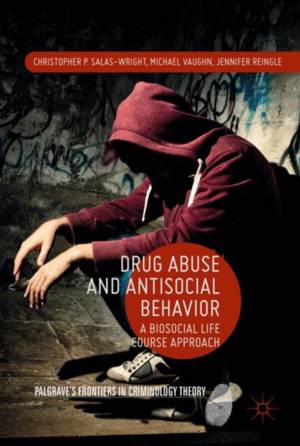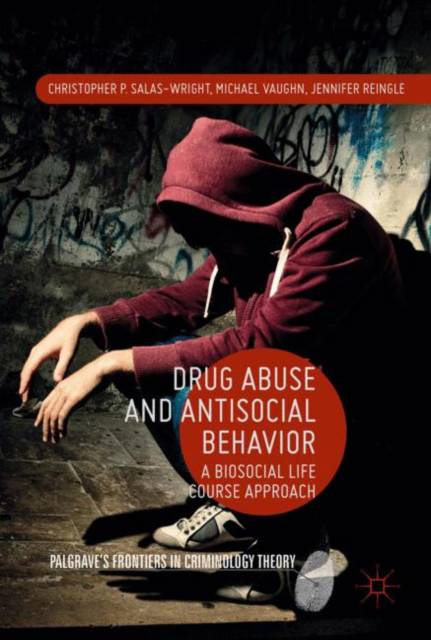
Bedankt voor het vertrouwen het afgelopen jaar! Om jou te bedanken bieden we GRATIS verzending (in België) aan op alles gedurende de hele maand januari.
- Afhalen na 1 uur in een winkel met voorraad
- In januari gratis thuislevering in België
- Ruim aanbod met 7 miljoen producten
Bedankt voor het vertrouwen het afgelopen jaar! Om jou te bedanken bieden we GRATIS verzending (in België) aan op alles gedurende de hele maand januari.
- Afhalen na 1 uur in een winkel met voorraad
- In januari gratis thuislevering in België
- Ruim aanbod met 7 miljoen producten
Zoeken
Drug Abuse and Antisocial Behavior
A Biosocial Life Course Approach
Christopher P Salas-Wright, Michael G Vaughn, Jennifer M Reingle González
€ 198,45
+ 396 punten
Omschrijving
This book is rooted in the conviction that human biology plays a critical role in understanding drug abuse and antisocial behavior. In the same breath, however, it fundamentally affirms the importance of the many social and environmental factors that influence our behavior across the life course. The study begins with an overview of the scope of the problem of drug abuse and crime, and an examination of how these problems often feed into one another. Building upon that foundation, the focus shifts to a review of cutting-edge research on the genetics and neurobiology of addiction and antisocial behavior across the developmental periods of childhood, adolescence, and adulthood. An exploration of the implications of a biosocial life course approach in terms of drug abuse prevention, and an examination of what lies ahead for drug abuse and criminological research conclude this detailed and timely book. Policy makers, practitioners and scholars of criminology and sociology will find this of particular interest.
Specificaties
Betrokkenen
- Auteur(s):
- Uitgeverij:
Inhoud
- Aantal bladzijden:
- 219
- Taal:
- Engels
- Reeks:
Eigenschappen
- Productcode (EAN):
- 9781137558169
- Verschijningsdatum:
- 2/05/2017
- Uitvoering:
- Hardcover
- Formaat:
- Genaaid
- Afmetingen:
- 148 mm x 210 mm
- Gewicht:
- 435 g

Alleen bij Standaard Boekhandel
+ 396 punten op je klantenkaart van Standaard Boekhandel
Beoordelingen
We publiceren alleen reviews die voldoen aan de voorwaarden voor reviews. Bekijk onze voorwaarden voor reviews.









